I've already ranted about Facebook games, hey, I even made a comparison table between a few Facebook games. But not everything is bad, and TrainStation is one of the few games that truly leverages Facebook "friend" network and stays addictive beyond the first 30 minutes of play.
(Article originally published on my blog Reactoweb)
Why's that ? Why a single Facebook-based flash game can hook a player for days, weeks, months, even years, while dozen of others hardly achieve to retain most players after a few minutes of play ?
While playing, I started to collect thoughts about why I was playing it days after days, adding unknown people on Facebook as friends (based on their profile picture, if it was a train, true story), signin in on the game forums and posting in it. Here's the result of this collection, hope it'll help future game designer/developer.
Specialized game
TrainStation is (obviously) about trains and stations, but in a way that it's designed for train enthusiasts. It features real train engines, along with actual names and description/history. The gameplay is somewhat simple, you send and receive trains, graphics tend to be realistic, and the game itself is pretty long-haul.
The result : less global audience, as non-train fans will be repelled by the game, but train fans have a great chance to be hooked up by the game and to become a regular player. I don't have the numbers, but I guess that long-term players are the most likely to spend real money in the game, and enjoy it.
Even if they don't want to pay a dime (like me), they still would be more likely to participate on the forums and support the community one way or another.
Regular bonuses, even paying money
I really liked how the game is constantly throwing bonuses at you, even it's still up to you to catch them, sometimes literally. The whole game is about loading/unloading trains filled with resources or passengers/mail, allowing you to buy building for your train station. Aside from the trains you bought and sent manually, you can collect resources from many other sources :
- Mail envelopes popping up on your train station screen
- Random bonus trains arriving at your station
- Bag of mail and bonus trains waiting at your friends' station
- Resources popping from the train you follow on his journey
- Daily mini-game on the game website
The important thing is that these bonuses are only awarded if you play the game. The longer you play, the more bonuses you get. It's very different than all those games with action points that limit your play time. Here you know that if you play more, you will get more, as it should be the case for every other game.
Game pace choice
Unlike most other game, in Trainstation you can decide the pace of the game. When sending your trains getting resources or delivering passengers/mail, it's up to you to set the time they will take to make the round-trip to your station. The longer you sent them, the more you get resources, but short trips are more efficient. At first you are tempted to send your train for ten minutes each time, as it maximizes resources output. But after a few times, it becomes too time-consuming and you switch to 30-minutes rides, until you find 2-hours ride to be your cruise speed.
But if you can sustain 10-minutes ride rythm, you're free to keep this pace of game, it's entirely up to you, the game itself does not impose any constraint on this matter.
There is always something to do
One of the major flaw with Facebook-based game including limitations like action points or building time is that once you've done everything you could during a game session, you just have to close the game and wait. Because of that, you can completely forget the game for days before reopening it. In this case, you're not far from quitting playing this game. After all, if you can't remember it ?
On the contrary, TrainStation allows the player to play almost infinitely, as there is always something optional to do. If you want to play for a long time, you can. If you are on a short schedule, you can play too.
Every action awards XP points
Available items to buy (trains, cars, buildings, decorations, game enhancements) are unlocked through a classic experience/level system. The good thing is that you gain experience points for nearly every action in the game :
- Sending trains
- Loading/Unloading trains
- Buying anything
- Earning achievements
- Planting flags at other player's station (improving their passenger rate)
- Experience popping from the train you want to follow on his journey
Even if some of these actions only give a handful of points, it helps to realize your progression in the game. If you play regularly, you can steadily pass a level each 2 or 3 days, you're never stuck, unless you don't play at all.
Friends requirements are low
Having friends is not mandatory to progress in the game. You don't have to ask them for items you could not get otherwise. Still, having friends playing the game is nice because they get you free resources that boost your progress. And since the game has his own community (because it's specialized in trains), you know that some people in Facebook will be happy to be your friend in the game.
I guess that's why I looked for a thread in the forum offering friends request for add in the game. From this point, things sky-rocketed. I added a dozen friends, then I answered to a dozen request more, then I started adding friends based on Facebook suggestion and the fact that they had a train on their profile picture (true story). Up until the point that I couldn't manage this much friends in the game, I spent too much time collecting various bonus generated by friends.
I guess that I didn't think that Facebook could be used as a game community platform before. Because, amongst friends you really know, only a few is interested in games, and not necessarily the same as you. But here, I can safely ask people to be friend in the game, because I already know they play it before I ask!
Internal Gift System
TrainStation features a gift system that enables you to send free gifts to your Facebook friends also playing the game. It's the case for almost every game on Facebook. But where most games use the ugly game request system provided by Facebook, TrainStation chose to implement its own ingame screen that runs smoothly.
Maybe it's a detail, but for me it's really convenient, because I don't have to wait for the Facebook game request overlay to load when I send gifts, and I don't received Facebook notifications when I receive a gift, leaving only important updates in my feed.
Spending real money is neither mandatory nor sufficient
As many other Facebook-based games, TrainStation offers to trade real mony in exchange for a special resources (the Gems) that helps you go beyond the standard limits of the game : you can teleport trains with full load, you can buy things without having sufficient materials to do so, and so on.
But TrainStation is built that way that you can't buy everything with Gems. At some point in the game, you just have to earn the right to buy some of the items that can only be purchased with actual resources. Moreover, some items are available by both means, resources or Gems. This compensates greatly the usual frustration of not being able to get everything in the game by transforming it into a choice : not paying is a choice you make, you will only be able to get 60 % of the items in the game. But paying is also a choice, you will only be able to get 60% of the items in the game. Either way, the remaining 40% of the items must be obtained the other way, by paying or playing, and that's very clever from Pixel Federation.
Achievements are hard to get
Achievement are pretty common in Facebook games (as well as console games). Completing a certain set of in-game tasks awards you a bonus, being resources or the symbol of this completion. Initially, achievements were hard to get. They allowed to extend the game lifetime by encouraging to reach the limits of the game.
However, over time, achievements became less and less difficult to get, to the point where achievements is awarded solely by playing the main game. As they are now easier to get, they are less interesting and rendered ineffective to increase play time. TrainStation put back the "achieve" in "achievements" by setting very high goals, sometimes ridiculous.
But their difficulty makes them fully-fledged game goals instead of just being mere checkpoints of game completion. Sometimes the bonus makes them priority targets, because the reward could not be obtainable by other means, sometimes it's just for the sake of it.
Furthermore, completing an unexpected difficult achievement is greatly rewarding, as it really shows your progression in the game.
Conclusion
TrainStation is not the ultimate universal game that everyone could enjoy playing, but that's for the better. Through careful design choices, often against common practice from big game editors, Pixel Federation achieved to make a great game destined to trains fans. Maybe that's the lesson to learn: Sticking to a narrow audience, and making everything possible not to bother them during their game session.
Disclaimer: Around the time I wrote this article, I was regularly receiving in-game currency from Pixel Federation in exchange for translating game content in french. But neither the existence nor the content of this article has ever been mentioned or discussed with any staff member of the video game studio.
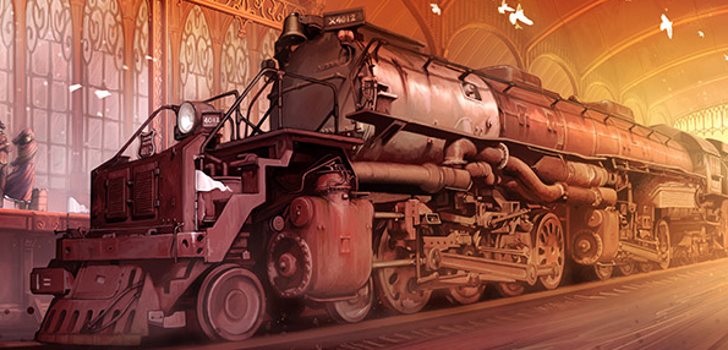

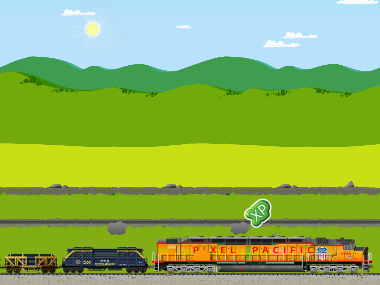
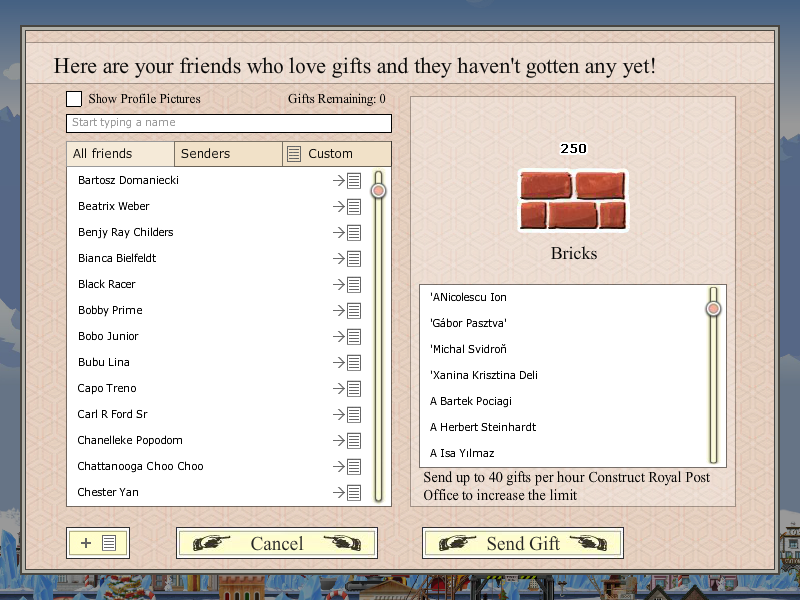
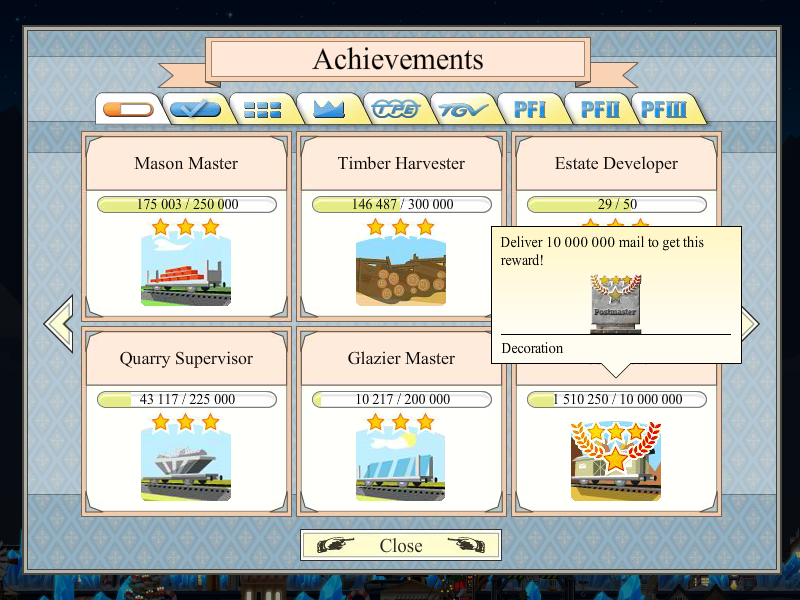

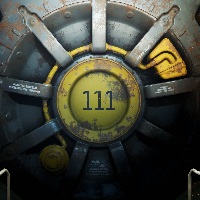


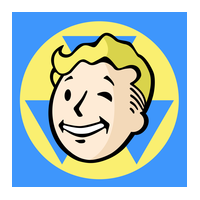
Almost three years later, I don't play Trainstation anymore and I proceeded to unfriend each and every people I added around that time. Still, I have no regrets and the highest regard for Pixel Federation as a video game development studio. Even if i'm not playing anymore, this article still stands.
Is the game still around ?
(do games on FB even disappear ?)
The game is still very much alive, I was able to retrieve my own game in a revamped interface.
If it wasn't clear, you can play Trainstation from the game portal. From there, you can either enter your email and play directly from the game portal or login with Facebook if you started playing when it was a Facebook-only game.